How to introduce eggs to your baby & toddler? Eggs are definitely a super food for little ones. They are loaded with so many nutrients needed for a proper brain and body development. I recently posted an article about the best baby and toddler recipes with eggs, sharing many delicious ideas on how to serve eggs to your kids. Today I would like to reply to the most frequent questions I receive about feeding eggs to babies and toddlers. I hope I replied to the most important ones and if I missed any, please let me know in the comments below. I will be happy to reply to those ones too! Let’s start 🙂
WHEN CAN I OFFER EGGS TO MY BABY?
Right at the beginning when you introduce solids into your baby’s diet. That’s usually around 6 months of age.
Interesting fact. When my older one was a baby (10 years ago) the pediatric recommendation was to introduce eggs after 1 year of age as they are a very common allergen. Around 2% of babies in the United States are allergic to eggs.
Recent studies1 2 3 suggests that allergenic food (like eggs) should be offered to babies starting from 6 months of age without any delay. Even better, the introduction of cooked eggs at 6-8 months of age may reduce egg allergy.
That being said, when you introduce eggs for the first time always keep an eye for any allergic reactions. Start with a tiny amount and increase at the following meal if you do not see any reaction. If you see any (hives, itching, swelling, upset stomach, diarrhea are just some) stop offering eggs and consult your pediatrician on how to proceed.
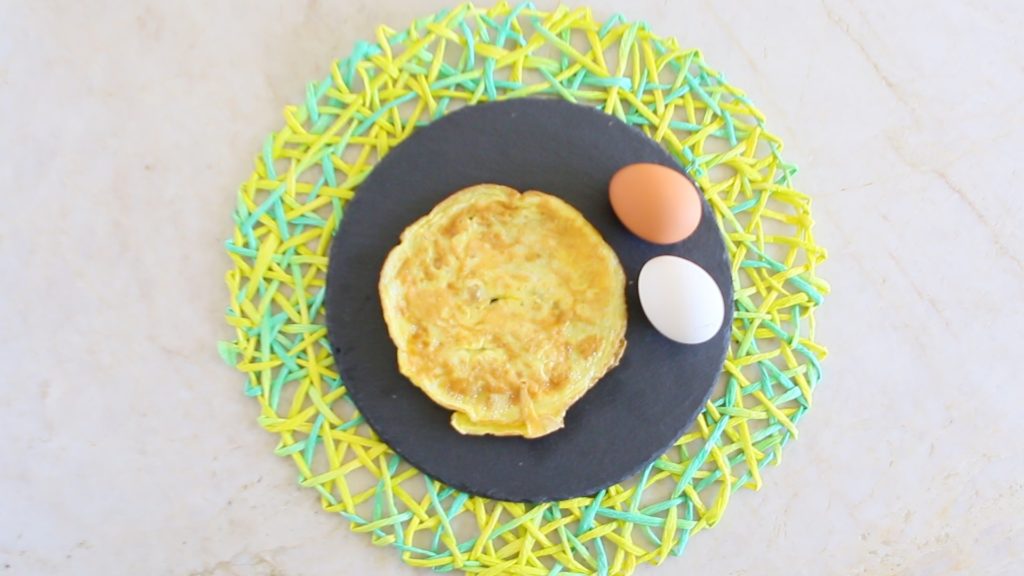
HOW OFTEN CAN I OFFER EGGS TO MY BABY? EVERY DAY?
There are no medical guidelines that suggest not to offer eggs daily to your baby or toddler. On the contrary, recent studies4 show that offering eggs to your baby at least 3 times a week may reduce the risk of an egg allergy by 80%.
So, yes, eggs can be part of your baby’s daily diet. Nevertheless, my recommendation is to offer your little ones a variety of foods in a well balanced colorful diet. Fruit, vegetables, proteins, carbs, a bit of everything. Variety is good both from a nutritional point of view (your baby’s body needs everything) and from a developmental point of view (the higher exposure to different foods, the higher acceptance of them and less pickiness in the future).
So, yes to eggs, but no to “only eggs”.
ALWAYS OFFER VERY WELL COOKED EGGS.
Don’t be afraid to overcook an egg for your baby.
Eggs, any egg, organic, not organic, may contain a bacteria called Salmonella that can cause severe illness in adults and in babies. Symptoms include nausea, vomiting, abdominal cramps, diarrhea, fever, and headache. To avoid salmonella, you just need to cook the egg properly. The bacteria dies with high temperature (160F/71C).

WHAT ABOUT QUAIL & DUCK EGGS?
There are no restrictions to the kind of egg you can offer to your baby.
Quail eggs are smaller than regular eggs. Also, comparing the same weight, so 100 grams of chicken egg and 100 grams of quail egg, quail eggs contain half of the amount of carbs, more than double the amount of iron and double vitamin B and a bit more fat than chicken eggs.
It’s also true that quail eggs are way more expensive than regular chicken eggs and also not so easy to find. Let’s consider them a baby gourmet food. If you have them, enjoy them!
You might also be able to find duck eggs. Sometimes they have them at the farmers market. Same color and shape, just way bigger, almost double. Their flavor is more bold and intense than regular chicken eggs. From a nutritional point of view they contain a bit more fat, double folate, almost three times the iron and five times more vitamin B than chicken eggs.
So, if iron is your final goal and you can find them, quail and duck eggs might be the way to go.
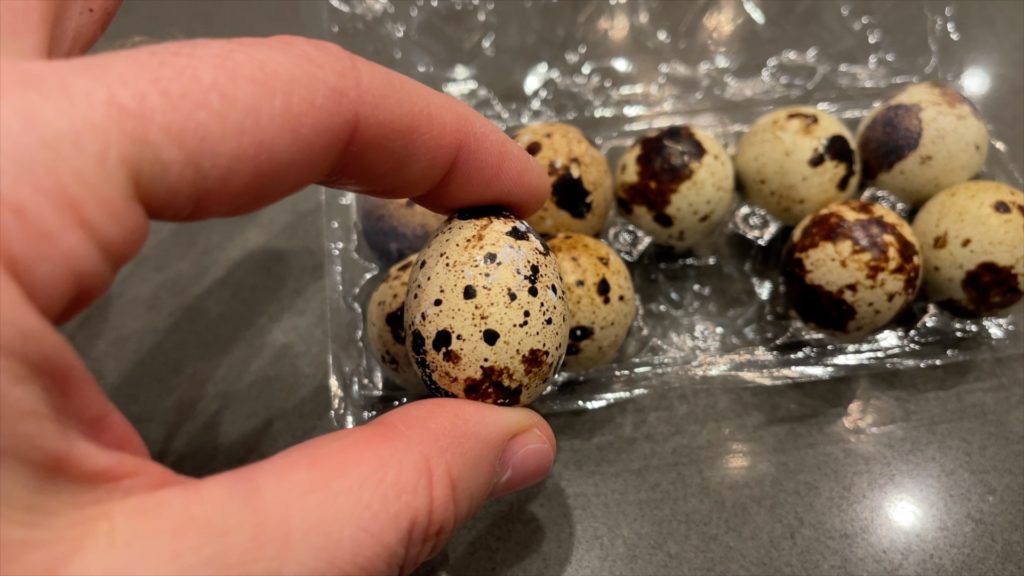
ARE EGGS CONSIDERED DAIRY?
This is a good question I receive very often.
Nope, eggs are not a dairy product. Dairy is any food that is milk or comes from milk. Eggs are laid from birds, not mammals and birds do not produce milk.
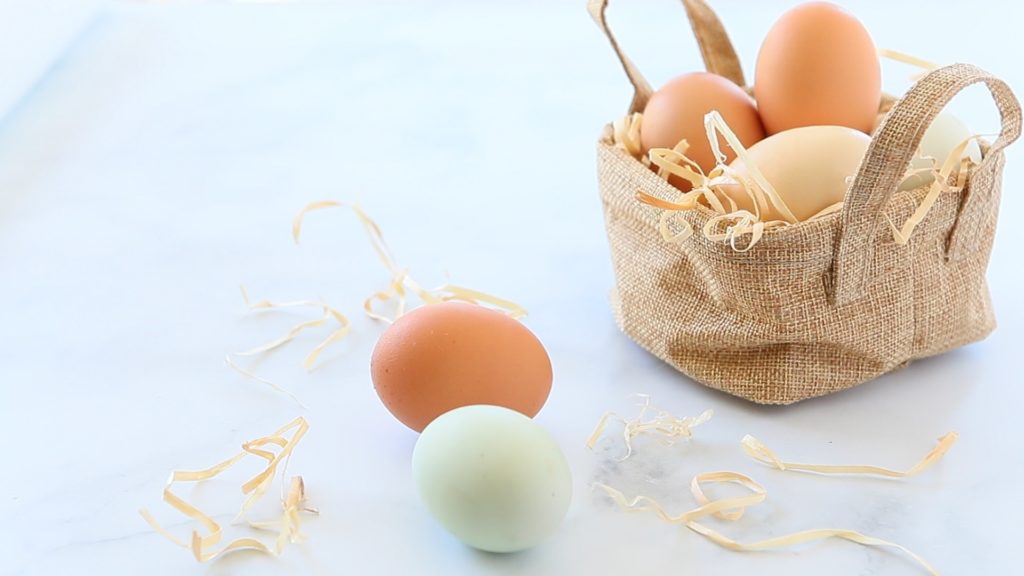
HOW LONG DOES AN EGG LAST?
This is a good question I receive very often.
Impressively an egg can last in the fridge for one month, one month and half and about 1 year in the freezer.
HOW CAN I CHECK IF AN EGG IS STILL GOOD?
Have you ever heard about the floating test? LOL, it’s fun!
Fill a bowl or a glass with sink water and gently place your suspect egg in. If it sinks to the bottom or is mid way to the surface, it’s good to eat. If it floats like a boat or reaches the surface, throw it away.
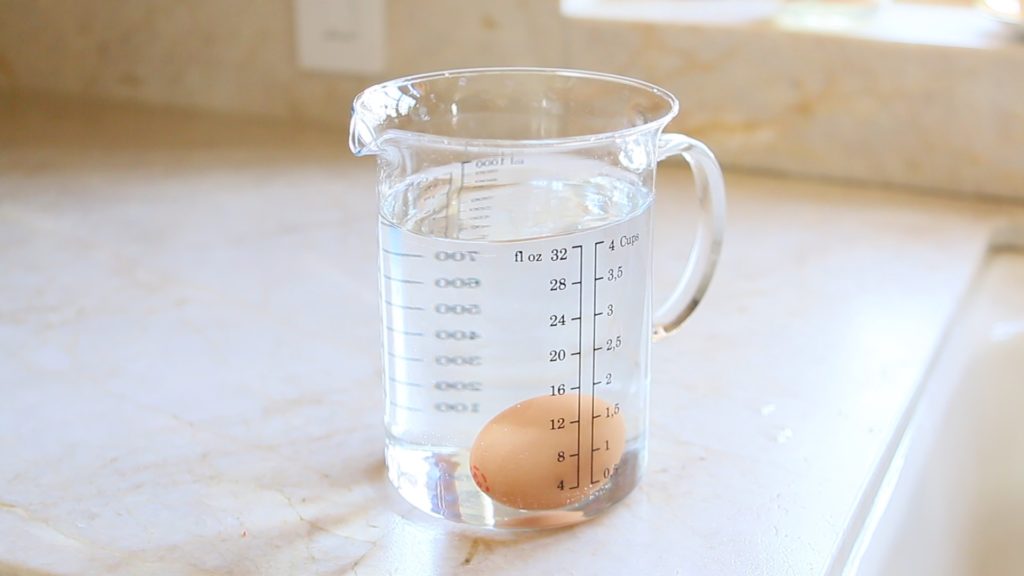
WHICH KIND OF EGG SHOULD I BUY FOR MY BABY?
Organic, cage-free, free-range, cage-free, pasteurized, brown, white, jumbo, vegerarian-fed, humanely treated, farm-fresh, no added hormones, antibiotic-free. The best one? “Natural” like..is there an unnatural egg on the market? So many labels and so much confusion. I’m there with you!
But what those labels mean and how much marketing or science is behind them?
Today I’m not going into details of every label (but let me know in the comments if you would like a video about egg labels). I just share my personal choice.
When available, I buy certified organic eggs, that automatically means free-range chickens fed with organic feed (no antibiotics, no hormones). I think it’s a good price/quality compromise and I feel comfortable using them for my family. I also buy eggs at the farmers market, I know they are super fresh as they pick them the day before the market. The price is the same of the organic ones I buy at the grocery store and I love to support farmers.
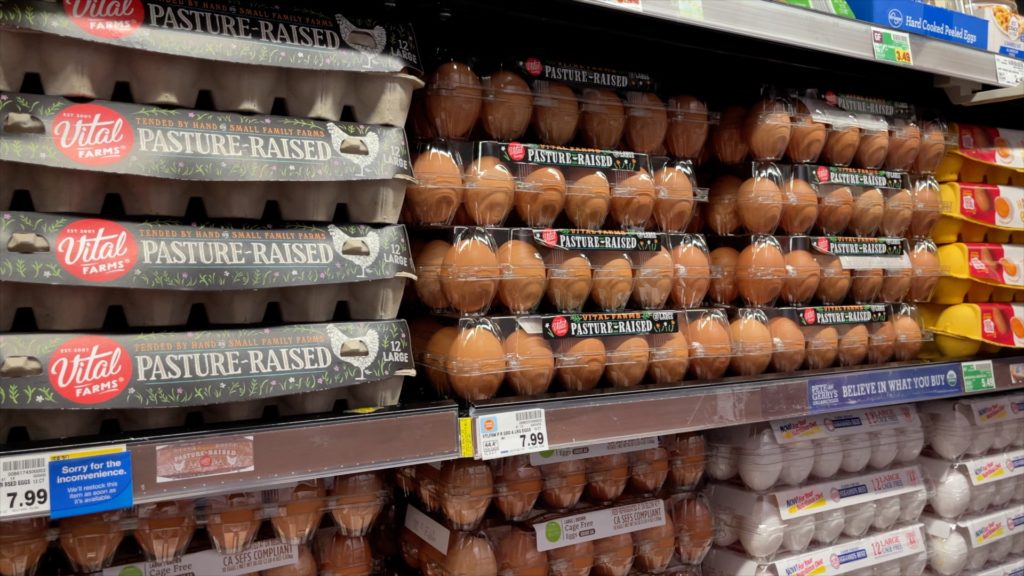
READY TO COOK WITH EGGS? CHECK OUT THIS POST WITH SO MANY YUMMY AND HEALTHY RECIPES!
DO YOU HAVE MORE QUESTIONS ON THIS TOPIC?
If you have more “egg related” questions for me, please add them in the comment area here below and I will be happy to reply as soon as I can! Thank you so much.
- Carlo Caffarelli , Dora Di Mauro , Carla Mastrorilli , Paolo Bottau , Francesca Cipriani , Giampaolo Ricci. Solid Food Introduction and the Development of Food Allergies . Nutrients, 2018 Nov 17;10(11):1790. doi: 10.3390/nu10111790
- Elizabeth Yakaboski, Lacey B Robinson, Anna Arroyo, Janice A Espinola, Ruth J Geller, Ashley F Sullivan, Susan A Rudders, Carlos A Camargo. Early Introduction of Food Allergens and Risk of Developing Food Allergy. Nutrients, 2021 Jul 5;13(7):2318. doi: 10.3390/nu13072318
- Sandrine Kakieu Djossi, Anwar Khedr, Bandana Neupane, Ekaterina Proskuriakova, Keji Jada, Jihan A Mostafa. Food Allergy Prevention: Early Versus Late Introduction of Food Allergens in Children. Cureus, 2022 Jan 9;14(1):e21046. doi: 10.7759/cureus.21046. eCollection 2022 Jan.
- Osamu Natsume, MD *Shigenori Kabashima, MD *Junko Nakazato, MD Kiwako Yamamoto-Hanada, MD Masami Narita, MD Mai Kondo, MD . Two-step egg introduction for prevention of egg allergy in high-risk infants with eczema (PETIT): a randomised, double-blind, placebo-controlled trial. The Lancet, 2017, VOLUME 389, ISSUE 10066, P276-286.

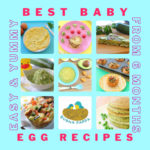







1 Comment
Did you make this recipe? Share the love, tag @buonapappa on Instagram and hashtag it #buonapappa I would love to see your creations!
How to introduce eggs to your baby & toddler – MySpecialFood.com
April 21, 2022 at 10:05 pm[…] post How to introduce eggs to your baby & toddler first appeared on Buona Pappa. Source: How to introduce eggs to your baby & […]